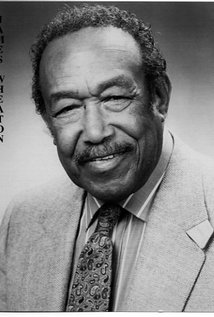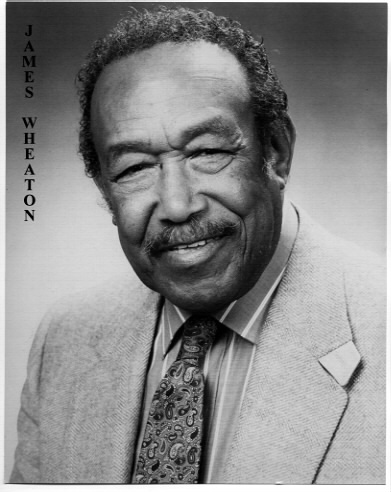The eldest son of the Reverend James D. Wheaton, a Methodist minister and Jessie O. Holmes, the daughter of a Methodist minister, James Lorenzo Wheaton was born on 11 January 1924 in Meridian, Mississippi. As an infant the family moved to Hattiesburg, Mississippi.He attended public schools in Hattiesburg, Meridian and Yazoo City, Mississippi. After...
Show more »
The eldest son of the Reverend James D. Wheaton, a Methodist minister and Jessie O. Holmes, the daughter of a Methodist minister, James Lorenzo Wheaton was born on 11 January 1924 in Meridian, Mississippi. As an infant the family moved to Hattiesburg, Mississippi.He attended public schools in Hattiesburg, Meridian and Yazoo City, Mississippi. After graduating from Yazoo City High School #2 (where he was actively involved in student government), he began his college education at Wiley College, a Methodist institution located in Marshall, Texas. At Wiley, he served as senior class president. Upon his graduation in 1945, James was drafted into the U.S. Army at the tail end of World War Two. Stationed in the Philippines, he served as a chaplain's assistant for most of his time in the military. It was at this time he began to take a serious interest in acting. However, he turned down the opportunity to become involved in the Philippines's developing film industry, anxious to return back to the United States.Upon his return to the United States, he was accepted into a Master's Degree Program at Columbia University, where he majored in speech communication and acting. Upon his graduation, he taught at the secondary school level and eventually at Wiley College, where he met his future bride, Helen Ruth Alford, who was a student at the time.Shortly thereafter, they relocated to the Los Angeles area, where two children were born to this union. It was also during this time where Wheaton began to work professionally as an actor. First working in radio, his big break came when he auditioned and was cast as a member of the Bishop's Company, a repertory theatre group that toured churches throughout the Mid-West and the South. His first year with the Bishop's Company was documented in his memoir, "Masks Before the Altar," which was published in 1999 by Xlibris Press.In addition to his work with the Bishop's Company, he performed regularly in various stages throughout the Los Angeles area, most notably the Ebony Showcase Theatre, which was founded by actor Nick Stewart. His roles at the theatre included the father in the long-running hit, "Norman, Is That You?," a role later played by Redd Foxx in a feature film version. Mr. Wheaton also directed a touring production of the play starring Pat Paulsen. The late veteran actor Joel Fluellen once commented that Wheaton "brought class to the Ebony Showcase."Making quite a name for himself in theatre, it was only a logical step that he began working in television. One of his first appearances was a television adaptation of the play, "Carnival Island," which he had performed at the Ebony Showcase.He was the person originally cast as Bill Cosby's father in "The Bill Cosby Show," but lost the part due to a mix up with his message service. This however did not prevent him from appearing on the program. His first major film credit was as the voice of "OMM," in THX 1138 (1971)," directed by George Lucas. The director was so impressed with his work that he was chosen to play the role over Orson Welles, which was the studio's first choice.During the late 1960s and 1970s, he appeared on some of the most popular television programs of the day including Room 222 (1969), Kojak (1973), Good Times (1974) and the final episode of Ironside (1967). However, he is perhaps best known for his recurring role as Nelson B. Davis, "The Friendly Undertaker" in the hit series, Sanford and Son (1972). Other feature film credits included Black Belt Jones (1974) and most recently, Guncrazy (1992) with Drew Barrymore. He also reteamed with Bill Cosby in A Piece of the Action (1977)," which also starred and was directed by Sidney Poitier.In his later years, more time was devoted to his simultaneous career of teaching. However, he also expanded his resume into music videos and was developing a one man show on the life and work of Langston Hughes at the time of this death.
Show less «




